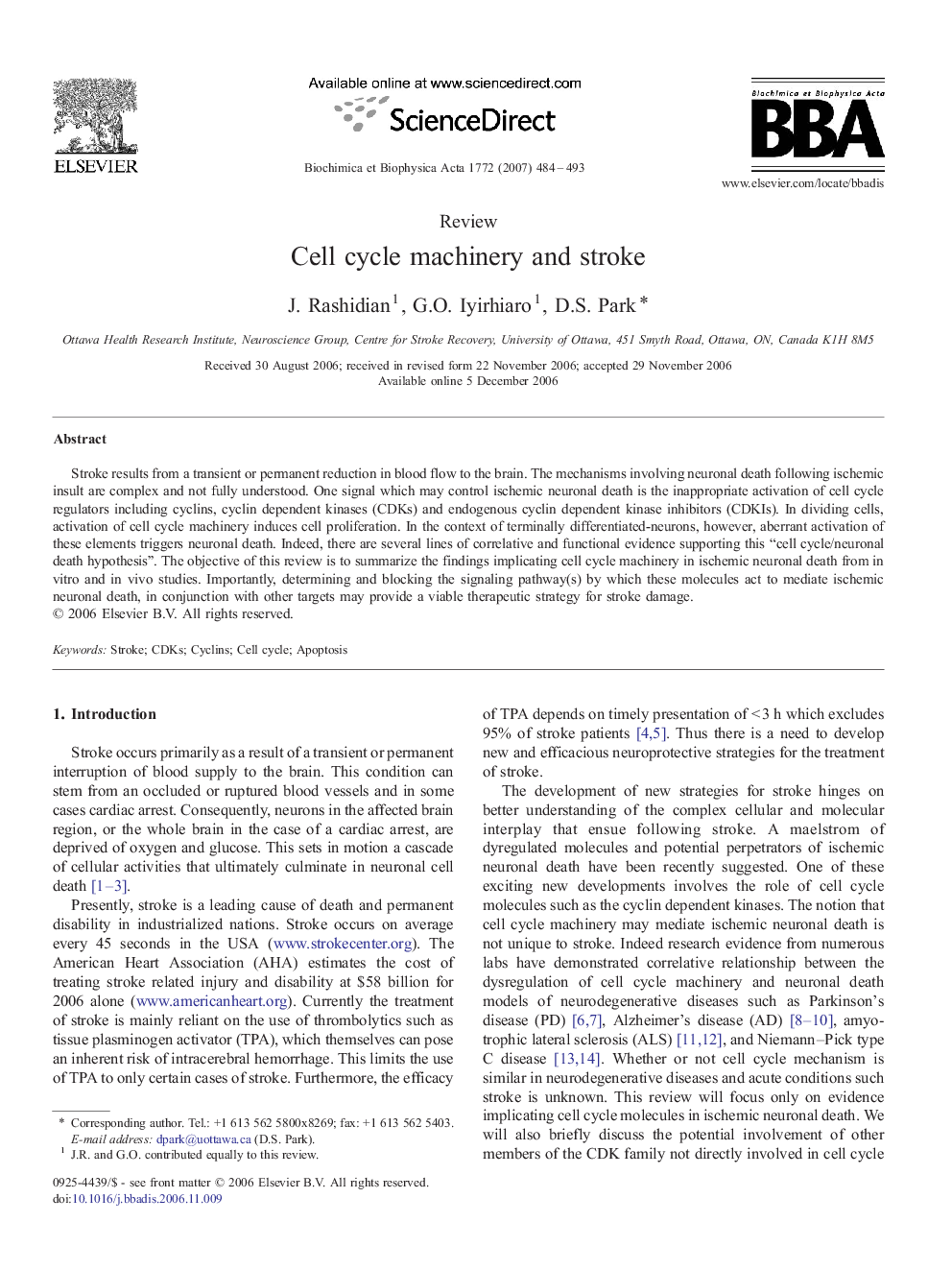| Article ID | Journal | Published Year | Pages | File Type |
|---|---|---|---|---|
| 1905826 | Biochimica et Biophysica Acta (BBA) - Molecular Basis of Disease | 2007 | 10 Pages |
Stroke results from a transient or permanent reduction in blood flow to the brain. The mechanisms involving neuronal death following ischemic insult are complex and not fully understood. One signal which may control ischemic neuronal death is the inappropriate activation of cell cycle regulators including cyclins, cyclin dependent kinases (CDKs) and endogenous cyclin dependent kinase inhibitors (CDKIs). In dividing cells, activation of cell cycle machinery induces cell proliferation. In the context of terminally differentiated-neurons, however, aberrant activation of these elements triggers neuronal death. Indeed, there are several lines of correlative and functional evidence supporting this “cell cycle/neuronal death hypothesis”. The objective of this review is to summarize the findings implicating cell cycle machinery in ischemic neuronal death from in vitro and in vivo studies. Importantly, determining and blocking the signaling pathway(s) by which these molecules act to mediate ischemic neuronal death, in conjunction with other targets may provide a viable therapeutic strategy for stroke damage.
